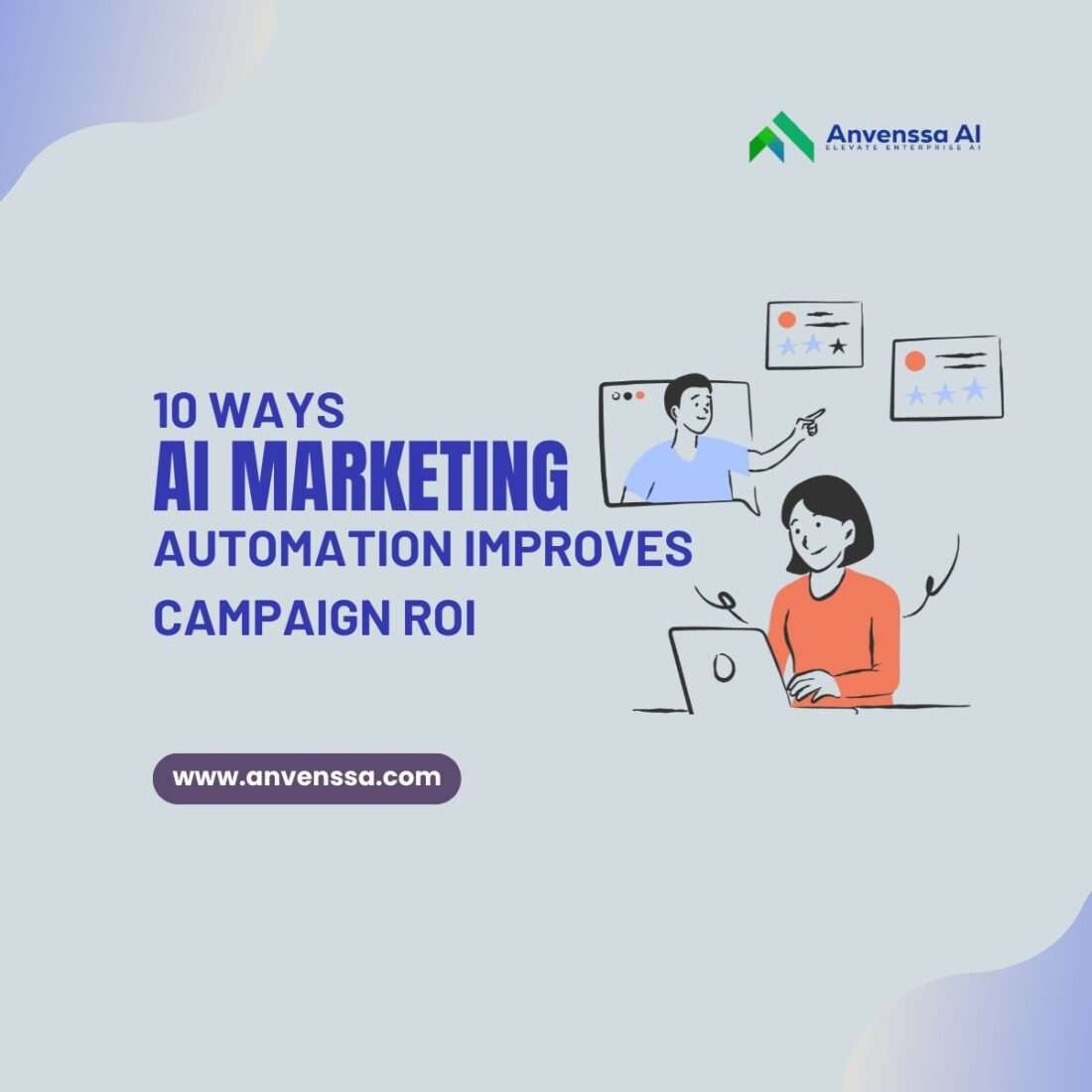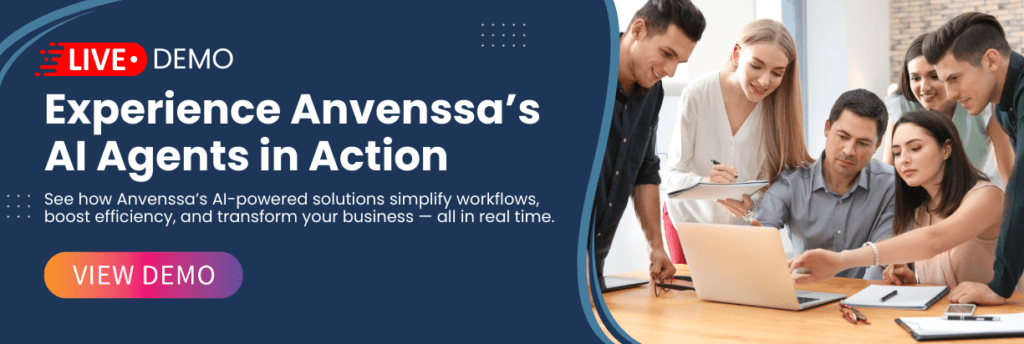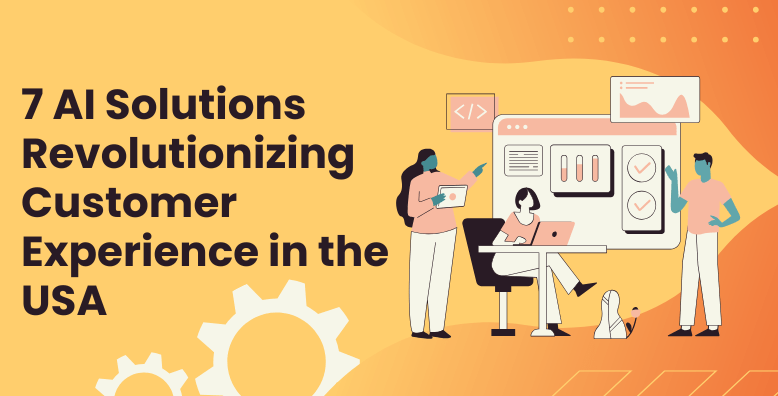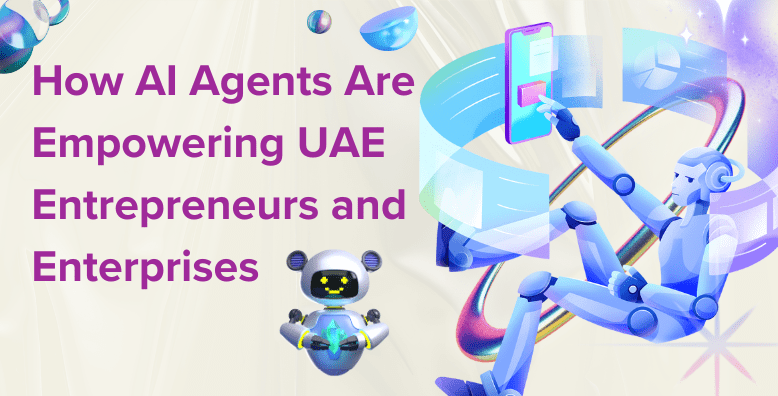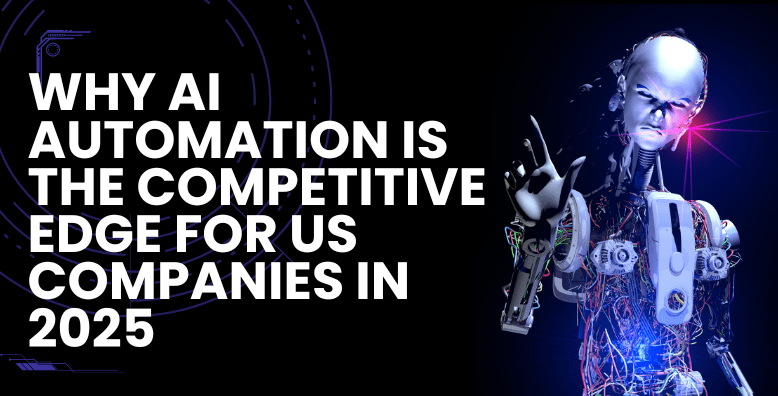In today’s competitive digital landscape, marketing teams face mounting pressure to deliver results faster, smarter, and with higher returns. This is where AI Marketing Automation comes into play. By integrating artificial intelligence into automation workflows, businesses can significantly enhance their campaigns, streamline operations, and maximize Campaign ROI.
This article explores 10 powerful ways AI Marketing Automation Improves Campaign ROI, helping marketers unlock efficiency, personalization, and data-driven decision-making.
What Is AI Marketing Automation and Why Does It Matter?
AI Marketing Automation combines the power of artificial intelligence with automation tools to simplify repetitive tasks, analyze vast datasets, and deliver real-time insights. Unlike traditional automation, AI adds a predictive and adaptive layer, allowing marketers to personalize campaigns, predict customer behavior, and optimize performance.
The ultimate goal? Boosting Campaign ROI by ensuring that every marketing dollar is invested wisely. Businesses that adopt AI-driven systems see measurable improvements in results because AI Marketing Automation Improves Campaign ROI consistently across multiple channels.
1. Hyper-Personalized Customer Experiences
AI enables marketers to move beyond generic campaigns by leveraging customer data such as browsing history, purchase patterns, and engagement behavior. With AI-driven personalization:
- Emails adapt to individual preferences.
- Website content changes dynamically.
- Product recommendations become more relevant.
This level of personalization increases engagement and conversion rates, directly contributing to improved ROI.
Experience Anvenssa AI in Action – Book Your Live Demo
See how Anvenssa’s AI agents transform your workflow with smarter automation, faster results, and seamless business growth.
2. Predictive Analytics for Smarter Decisions
One of the strongest advantages of AI Marketing Automation is predictive analytics. AI models can forecast:
- Which leads are most likely to convert.
- The best time to send campaigns.
- What type of content resonates with different segments.
By acting on these insights, marketers reduce wasted effort and allocate budgets effectively, maximizing Campaign ROI.
3. Automated Customer Segmentation
Traditional segmentation is time-consuming and often broad. AI refines this process by analyzing behavior patterns and grouping customers into precise segments. For example:
- High-value customers vs. one-time buyers.
- Loyal subscribers vs. at-risk churners.
This ensures campaigns are laser-focused, leading to higher engagement and reduced costs.
4. Smarter Ad Targeting and Bidding
Paid campaigns often drain budgets if not optimized. AI-powered platforms optimize ad targeting and bidding strategies by:
- Identifying the right audience.
- Adjusting bids in real-time based on performance.
- Reducing spend on underperforming placements.
The result? Lower acquisition costs and stronger returns on ad spend.
5. Enhanced Content Creation and Optimization
AI doesn’t just automate—it creates. From generating blog drafts to writing ad copy, AI tools help marketers deliver content that resonates with audiences. More importantly, AI can:
- Suggest keywords to improve SEO rankings.
- Analyze which content formats yield the best results.
- Continuously A/B test variations.
Optimized content increases visibility, drives traffic, and directly impacts Campaign ROI.
6. Real-Time Campaign Performance Tracking
Monitoring campaigns manually can delay responses to underperformance. With AI Marketing Automation, marketers get:
- Real-time dashboards with actionable insights.
- Automatic alerts when KPIs drop.
- Suggestions for corrective action.
By making adjustments instantly, businesses avoid wasted spend and capitalize on opportunities faster.
7. Lead Scoring and Nurturing
Not all leads are created equal. AI assigns scores to leads based on behavior, demographics, and likelihood to convert. Automation then nurtures these leads with:
- Personalized email sequences.
- Relevant product recommendations.
- Timely follow-ups.
This targeted nurturing ensures sales teams focus on the right prospects, accelerating conversions and improving Campaign ROI.
8. Chatbots and Conversational AI
AI-powered chatbots enhance customer engagement by providing instant support, answering queries, and even guiding users through purchase decisions. Benefits include:
- 24/7 customer assistance.
- Reduced dependency on human agents.
- Higher satisfaction and faster conversions.
Chatbots improve retention and lower support costs, indirectly strengthening campaign profitability.
9. Reducing Churn Through AI Insights
Customer retention is often more cost-effective than acquisition. AI analyzes patterns such as declining engagement or purchase frequency to predict churn. Automation then triggers retention strategies like:
- Loyalty rewards.
- Special offers.
- Re-engagement campaigns.
By reducing churn, businesses improve customer lifetime value (CLV), directly boosting ROI.
10. Seamless Multichannel Marketing
Consumers engage across email, social media, SMS, and web platforms. AI Marketing Automation ensures seamless communication across these touchpoints by:
- Delivering consistent brand messaging.
- Timing messages for maximum impact.
- Eliminating overlaps and redundancy.
A unified multichannel strategy increases visibility, strengthens relationships, and improves ROI efficiency.
The Bigger Picture: How AI Marketing Automation Improves Campaign ROI
The benefits of AI extend beyond just cost savings or faster execution. They empower businesses to:
- Deliver personalized experiences at scale.
- Make smarter, data-driven decisions.
- Enhance both acquisition and retention.
In fact, multiple studies show that AI Marketing Automation Improves Campaign ROI by streamlining workflows, optimizing content, and driving smarter audience engagement strategies.
Conclusion
The future of digital marketing lies in leveraging intelligence and automation together. Businesses that embrace AI Marketing Automation are better positioned to outpace competitors, optimize spending, and maximize Campaign ROI.
By leveraging these 10 strategies, companies gain a clear advantage. Simply put, AI Marketing Automation Improves Campaign ROI by ensuring every touchpoint is smarter, faster, and more profitable.
FAQs on AI Marketing Automation and Campaign ROI
1. How does AI Marketing Automation improve campaign ROI?
AI Marketing Automation Improves Campaign ROI by delivering hyper-personalized campaigns, optimizing ad spend, predicting customer behavior, and reducing churn. This ensures marketing resources are allocated more effectively, leading to higher returns.
2. Can small businesses benefit from AI Marketing Automation?
Yes. Small businesses can use AI-powered tools for email marketing, social media automation, customer segmentation, and lead nurturing. Even modest investments can show measurable improvements in Campaign ROI.
3. What is the role of predictive analytics in AI Marketing Automation?
Predictive analytics uses AI to forecast customer actions, such as purchase intent or churn risk. By acting on these predictions, businesses can optimize campaigns and ensure AI Marketing Automation Improves Campaign ROI with smarter decisions.
4. Is AI Marketing Automation cost-effective?
Absolutely. While there may be initial setup costs, the long-term savings from reduced manual work, smarter targeting, and improved customer retention make AI automation highly cost-effective for enhancing ROI.
5. Which marketing channels benefit the most from AI Marketing Automation?
AI can optimize campaigns across multiple channels, including email, social media, paid ads, SMS, and websites. The multichannel approach ensures maximum engagement and better Campaign ROI.

